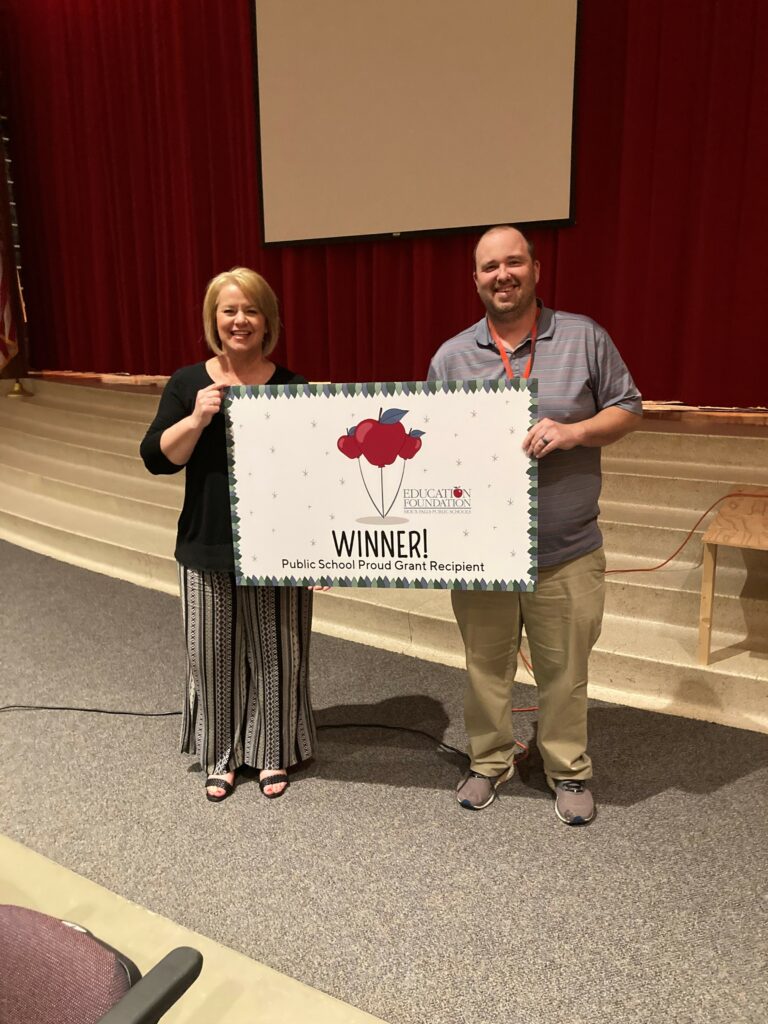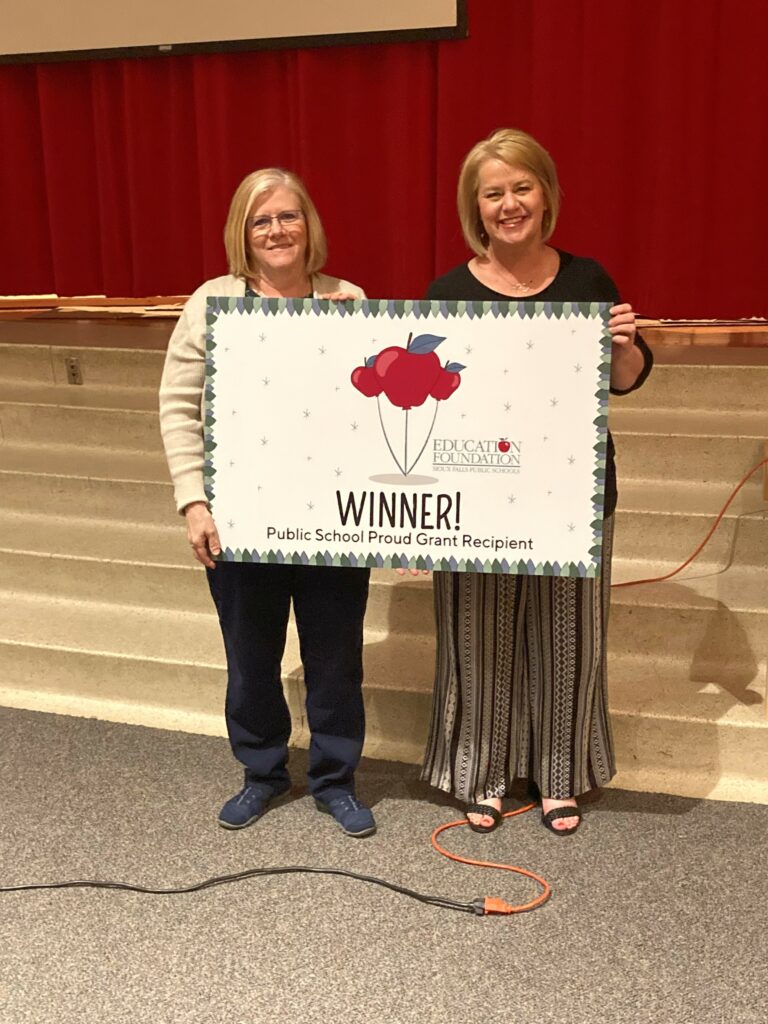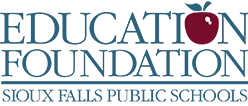The Sioux Falls Public Schools Education Foundation awarded two grants at Axtell Park. Dawn Marie Johnson, Brent Thurlow, and Connor Bergh received $1,030.31 for their grant, “Fortitude Foss: JoeCast.” They will purchase podcasting equipment for students at Joe Foss. In their application, they wrote, “The podcast system will provide a hands-on experience for students by creating partner and group projects that will challenge and inspire them to learn and grow. Students will have an opportunity to effectively communicate and learn how to disagree with viewpoints respectfully.
We have learned that speech is a daunting class for most high school students. We are hoping this option will combat that fear by provoking interesting conversations in a way that also allows them to earn course credit. They will have the chance to learn about media arts which is a demanding and competitive industry.
Students can complete courses in an innovative way that will broaden their perspectives and help them gain essential life skills. Not only will they learn how to communicate effectively, we hope they learn the power of positivity, investigative skills, and ultimately learn how to express themselves in a healthy manner. As an untraditional school, it can be difficult for students to mingle with peers and this would be one way for them to come together for a common goal. We feel Fortitude Foss will cultivate a culture within our pod that is empowering and educational!”

Mary Johnson received $1,435.00 for her proposal, “Makerspaces: Creations of the Brain.” She will use the funds to purchase a variety of items for her makerspace area.
In the application, she wrote, “As the teacher-librarian for this building, I house materials for Makerspaces in the library. Makerspaces are ‘a place in which people with shared interests, especially in computing or technology, can gather to work on projects while sharing ideas, equipment, and knowledge.’ I will use funds from this grant to serve students with disabilities, special needs, and behavioral issues in exploratory activities that supplement classroom learning. The programs here provide our students the specialized academic and behavioral help they need, but the library is a special place where the students can take a break to read something of interest, create or experiment through the limited Makerspace items we have, and carry these skills into the classroom and into their lives. Makerspace use leads to improved student performance, more engagement, and fewer problems with discipline and off-task behavior.
Makerspaces can include everything from basic art supplies to coding for computers to circuitry and other technology. When engaging in Makerspaces, students learn to work with a variety of items to create something different, understand and solve a problem, or challenge themselves to try something new. Students use Legos and connectors, art kits and supplies, mazes and contraptions, games, blanket-making, and snap circuits. They create their own stories as they work by themselves or with others to think outside the box.
Innovation is creating a new method, idea, or product, and Makerspaces are highly innovative in that the activities challenge students to identify a problem and use critical thinking to find a solution. Another aspect of Makerspaces is the act of selecting information, organizing it in a way that makes sense, and presenting the method, idea, or product to others. Continuing to provide Makerspace items for students will give them these types of opportunities to learn life skills through independent thinking, problem solving, and working in collaboration with others.”

